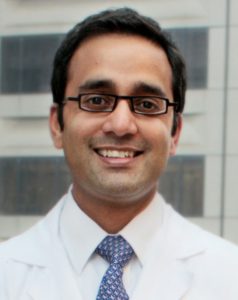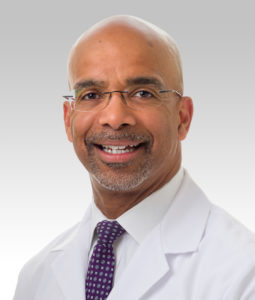Of the estimated five million patients in the U.S. diagnosed with heart failure annually, nearly half will have heart failure with preserved ejection fraction (HFpEF). Also known as diastolic heart failure, HFpEF occurs when the heart’s lower left chamber loses its ability to relax and fill up with enough blood in between in each heartbeat.
To compensate, the heart increases pressure inside the ventricle to properly fill with blood. This increased filling can cause fluid buildup in the lungs, leading to shortness of breath, fatigue, irregular heartbeat and, ultimately, heart failure.

While HFpEF accounts for most heart failure-related hospitalizations in the U.S. for people over 65, there is still a limited understanding about the underlying biological mechanisms and how to effectively prevent and treat the disease.
At the forefront of HFpEF research are investigators at the Feinberg School of Medicine, who were recently awarded an $18.1 million grant from the National Institutes of Health (NIH) to study the underlying pathophysiology of HFpEF. The grant is part of the NIH’s HeartShare program, a multi-institutional research effort with the goal of characterizing the mechanisms driving HFpEF and identifying new therapies.
Sanjiv Shah, ’00 MD, the Neil J. Stone, MD, Professor of Medicine in the Division of Cardiology and director of Northwestern Medicine’s Bluhm Cardiovascular Institute – Clinical Trials Unit, will lead HeartShare’s Data Translation Center at Northwestern, which will coordinate patient phenotypic data for all six HeartShare program sites.
“The HeartShare grant from the NIH is a phenomenal opportunity to continue our research to improve the classification of the heterogeneous HFpEF syndrome, understand the biological basis of HFpEF phenotypes and set the stage for precision medicine clinical trials for HFpEF,” said Shah, who is also director of the Institute for Artificial Intelligence in Medicine’s Center for Deep Phenotyping and Precision Therapeutics.

Northwestern will also be home to one of HeartShare’s six clinical centers. Sadiya Khan, ’09 MD, ’14 MSc, ’10, ’12 GME, assistant professor of Medicine in the Division of Cardiology and of Preventive Medicine in the Division of Epidemiology will lead the center, along with Laura Rasmussen-Torvik, PhD, chief of Epidemiology in the Department of Preventive Medicine, to recruit and enroll patients with HFpEF.
“Collectively, the field has come far, but we have not sufficiently addressed HFpEF. Uniquely here at Northwestern, we have the talent and now the resources to allow us to further study the pathophysiology of this particular iteration of heart failure,” said Clyde Yancy, MD, MSc, the Magerstadt Professor and vice dean for Diversity and Inclusion, chief of Cardiology in the Department of Medicine and a professor of Medical Social Sciences.
Improving Diagnosis and Treatment
HFpEF continues to be one of the most challenging cardiovascular conditions to diagnosis and treat. Unlike heart failure with reduced ejection fraction, there are currently no clear diagnostic tests for HFpEF. Healthcare providers must rely on interpreting patient signs and symptoms or cardiac imaging results, which often leads to a missed diagnosis.
A lack of clear definitions for subtypes of HFpEF has also contributed to confusion and misdiagnosis, therefore not all HFpEF patients receive the same treatment, and while some proven treatments are available and FDA-approved, long-term benefit is limited.
“Major work is still necessary in the areas of increasing recognition and diagnosis of HFpEF, discovering new biological pathways underlying the HFpEF syndrome, and identifying and validating novel phenotypes of HFpEF that can be targeted with specific therapies, which is consistent with our goal of advancing precision medicine for common, heterogeneous disorders like HFpEF,” Shah said.

Nevertheless, Shah added that in the past 15 years, investigators have learned more about the underlying biological basis of HFpEF. For example, risk factors such as physical inactivity, obesity, metabolic stress, hypertension and autoimmune diseases contribute to the development of HFpEF.
In 2007, Shah developed the world’s first HFpEF-dedicated clinical program at Northwestern to improve HFpEF prevention, diagnosis, treatment and prognosis. In February, his team found that patients with HFpEF could benefit from an atrial shunt, publishing their findings in The Lancet. The novel, minimally invasive device which is placed through a catheter could potentially lower pressure in the heart’s left atrium and reduce HFpEF symptoms.
Northwestern’s recent support from the NIH will expand upon this work, enabling Feinberg investigators to further study HFpEF to improve diagnosis, treatment and patient outcomes. Additionally, Feinberg investigators have already made significant contributions to the advancement of HFpEF treatments and identifying at-risk patient groups.
In a study published in Nature Medicine, a team of investigators including Shah and Khan found that dapagliflozin — a drug commonly used to treat type 2 diabetes — improved symptoms and physical limitations in patients with HFpEF.
Utilizing Machine Learning

Feinberg investigators have also employed machine learning to identify patients diagnosed with hypertension who were at risk of HFpEF. Led by Yuan Luo, PhD, associate professor of Preventive Medicine in the Division of Health and Biomedical Informatics and chief AI officer for the Institute for Artificial Intelligence in Medicine, the team used machine learning technologies to identify subgroups of patients with hypertension who expressed abnormal cardiac mechanisms.
“Such subtyping is important for heterogeneous clinical syndromes like hypertension and HFpEF,” Luo said. “Our results offer new avenues to systematically and coherently deriving such subtypes, which can lead to earlier identification of targeted interventions and improve patient outcomes.”
Expanding Cardiovascular Research and Care
Northwestern will soon have the opportunity to increase its cardiac care capacity with the creation of Northwestern Medicine’s new Bluhm Heart Hospital at Northwestern Memorial Hospital. Made possible by Chicago philanthropist Neil G. Bluhm and the Bluhm Family Charitable Foundation, the hospital will expand cardiovascular research and modernize cardiovascular care services at Northwestern and help Feinberg investigators recruit more patients in clinical trials with greater speed and diversity.
“With the new Bluhm Heart Hospital, we hope to expand the multidisciplinary nature of our program, see more patients, and offer even more clinical trials,” Shah said. “In addition, we are one of the leading centers for developing interventional HFpEF therapies, and our vision is to house a center for interventional heart failure therapies in the Bluhm Heart Hospital where we can develop and test novel interventional treatments for our HFpEF patients.”







